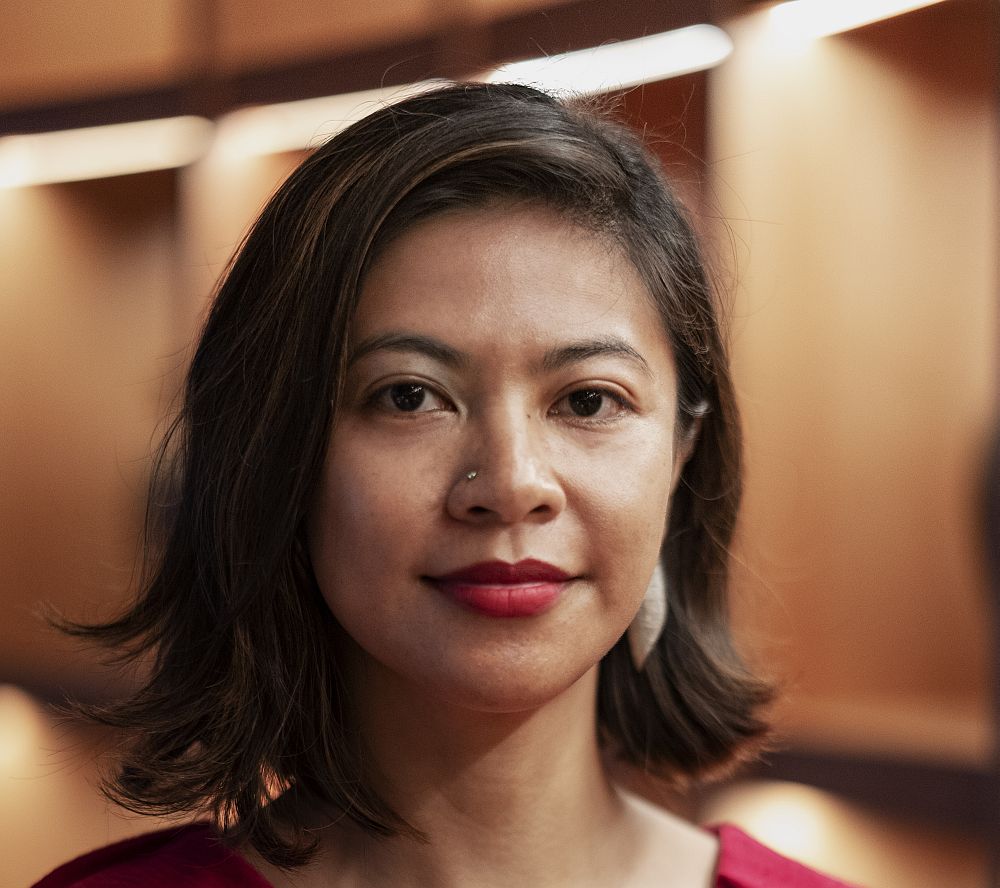KUALA LUMPUR, Dec 6 — Nadiah Wan is no stranger to success. From her days as a high-achieving student to being chief executive of one of the fastest growing health care companies in Malaysia, Nadiah is an all-round exceptional figure who thrives in the many roles she plays.
During the coronavirus pandemic, her ability to be compassionate, take swift action, and have trust in science made her stand out as a genuine leader. Nadiah was recently listed on Forbes Asia’s Power Businesswomen 2021 list, alongside 19 other outstanding women from the Asia-Pacific region, for her leadership roles as CEO at both TMC Life Sciences Bhd and its flagship Thomson Hospital Kota Damansara.
Despite the Covid-19 lockdowns, TMC Life Sciences posted a higher revenue of RM201 million for the financial year ending June 30, 2021, while net profit was up by 86 per cent to RM20.3 million, primarily due to a deferred tax liability, according to the company’s annual report.
Thomson Hospital Kota Damansara — which is expanding from a 205-bed facility to a building with 535 beds, 10 operating theatres, and over 154 outpatient clinics — has actively participated in the National Covid-19 Immunisation Programme (PICK) and received non-Covid patients decanted from public hospitals.
CodeBlue recently spoke to Nadiah via an online interview to delve deeper into her experience over the past 20 months in running a private health care operation during a pandemic, and her involvement in the now-disbanded Greater Klang Valley Special Task Force (GKVSTF).
Pivoting In The Wake Of Covid-19
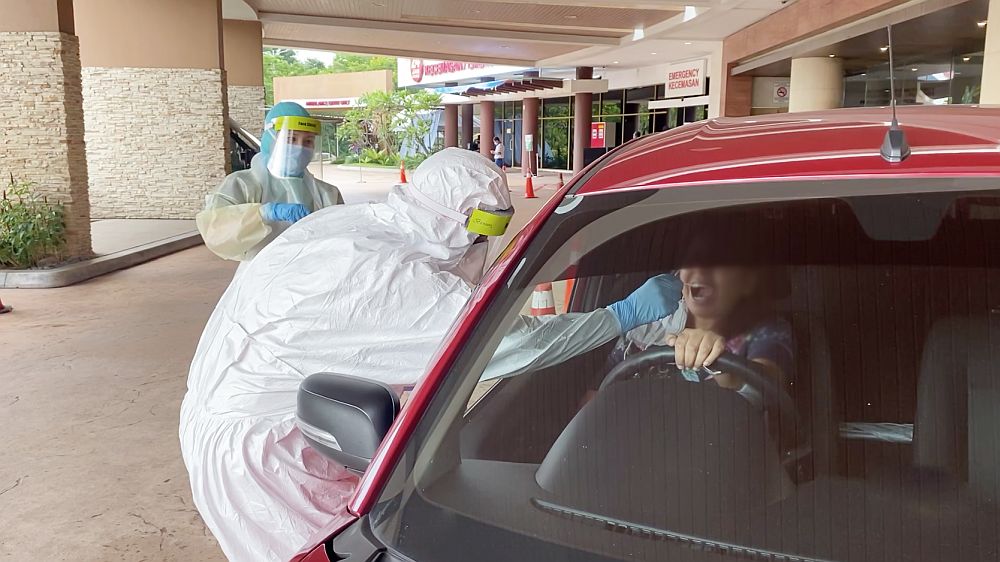
Nadiah’s youth and unmistakable passion for science and all things intricate meant that she was naturally proactive in figuring out ways for Thomson Hospital Kota Damansara to deal with the many rapid changes brought about by Covid-19.
The early days of the pandemic saw hospital visits fall sharply due to sudden border closures and strict restrictions on movement.
“The lockdown affected us very badly. Before the pandemic, 30 per cent of our patients at the hospital were actually medical tourists coming in from China and countries in the region like Indonesia and India.
“Of course, with the roadblocks, people were postponing their visits to hospitals and just staying at home,” Nadiah said.
Eventually, the restrictions relaxed and the hospital saw people coming back — some with Covid-19 — which presented a different set of challenges.
“Towards the end of 2020, we realised that the numbers were climbing up. We started to see a surge and I told my team that we really need to provide Covid services because it was getting harder to refer patients to public hospitals and we couldn’t be abandoning our patients just when they needed us most.
“So I think as early as November 2020, we started putting in place preparations to open up our Covid-19 wards and intensive care units (ICUs), and of course, we were also among the first to have a drive-through Covid-19 screening which became enormously popular. We were also amongst the first to have our doctors empowered to assess Covid patients to issue home quarantine and quarantine release orders,” Nadiah said.
Thomson Hospital Kota Damansara has since conducted over 26,000 Covid-19 screenings and treated nearly 400 coronavirus patients to date, including 80 to 90 patients in ICUs.
“I think the most important thing was pivoting to the Covid-19 services and it was quite challenging because we had to overcome internal doubts in the beginning before vaccination was rolled out this year. People were apprehensive about taking in Covid-19 patients, particularly the staff, and there were also worries that other patients would avoid coming to the hospital if they knew we were treating Covid patients.
“So, these were some of the issues where we had many discussions, had to implement many measures and make many decisions in order to safeguard the safety of our employees and patients who are coming to the hospital.
“I think it was a good decision — we saw a need in the community and we responded to it in a timely manner even before the government had mandated that private hospitals would have to admit Covid-19 patients,” Nadiah said.
Follow the Science, Respond with Innovation
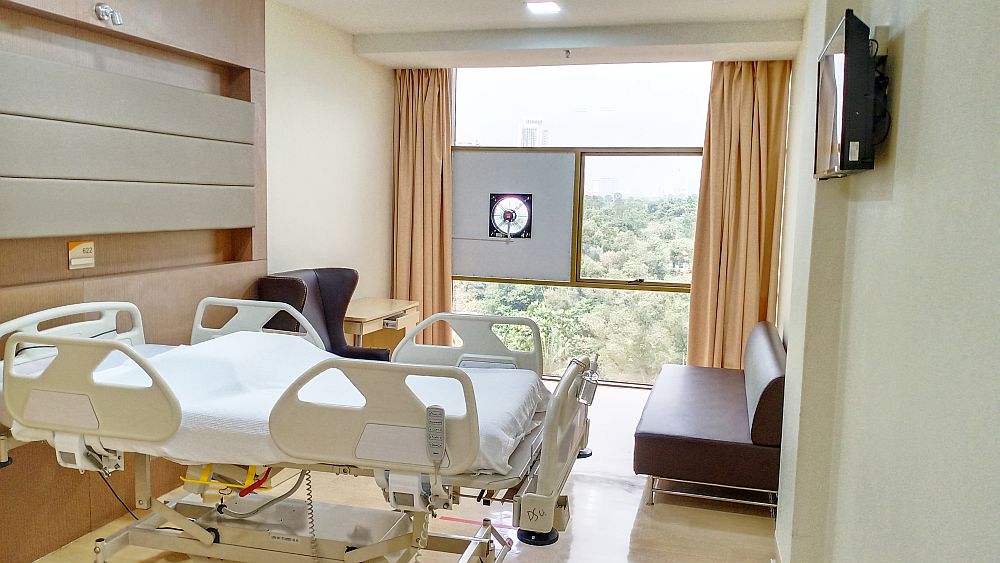
With Covid-19 out in the community, Thomson Hospital Kota Damansara needs to be constantly on the alert as well as innovative in addressing Covid-19 exposure risks.
It has since launched an online telehealth platform that allows for telehealth consultations and pharmacy delivery, but beyond that, Nadiah said the hospital has also installed CO2 monitors, and instituted counselling and town hall sessions with staff to communicate key measures to safeguard staff and patient safety. Covid, she says, has become a part of the hospital’s daily workload.
“Every hospital will probably need to have at least some infectious disease beds or wards in the future,” she added.
“In the beginning, it was difficult because we didn’t really know much about Covid-19. There was a lot of talk about droplet transmission, but actually, internally, in our discussions even with the district health office, based on the pattern of spread amongst our own staff, led us to believe that it was probably more an airborne communicable disease.
“And so, very early we spoke about improving ventilation in the hospital and quickly, we were putting up air purifiers in the clinics, wards and staff pantries, and we created these makeshift negative pressure rooms in the Covid wards by installing extractor fans into the walls to draw out the air so you’d have a continuous flow of clean air inside the wards,” Nadiah said.
“A lot of people who traditionally, I think, were never involved in health care were roped in to actually help us during this very difficult time. During the first lockdown we even had Tesco (now Lotus) to provide us styrofoam boxes to transport our Covid samples,” she added.
Equally important throughout the pandemic was the hospital staff’s wellbeing. From town hall sessions to keeping the hospital’s daycare open, Nadiah made sure that the concerns of the hospital staff were not only heard but looked after as they adjusted to a new working norm.
All staff, including outsourced staff, were extended Covid screenings and primary care health benefits to ensure that everyone would seek early access to screening and treatment for Covid-19.
“I also like to toss in different things to sort of spark their imagination or innovation, that we kind of take some time out to do things that are unrelated to the (usual) work but will help us improve to be better people.
“So for example, we had a communications workshop for some of the management team, and we still meet up like once a month to discuss how could we communicate better with our team. Recently, I enrolled my team to take a Design Thinking course that was sponsored by MaGIC (Malaysian Global Innovation and Creativity Centre).
“I think it’s really important because you can’t expect people to be creative, to remain passionate about their job if you don’t give them some buffer, or time or mental energy, to pursue things that are not related to the day-to-day running of things,” Nadiah said.
The GKVSTF Experience
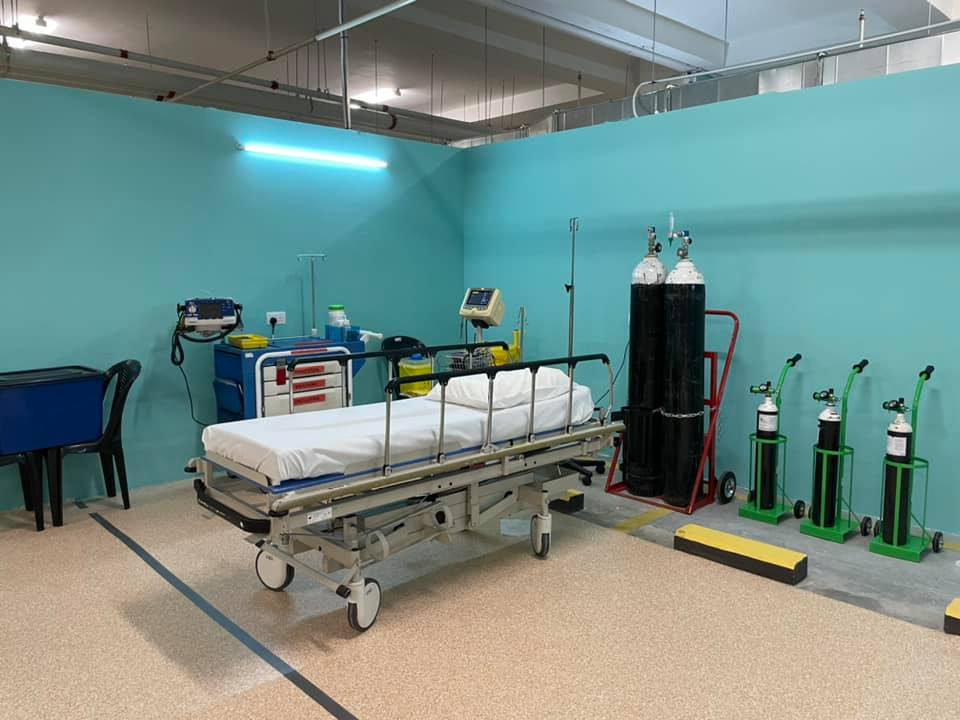
Other than her daily white-collar commitments, Nadiah was also involved in the GKVSTF, prior to its transformation as the National Rapid Response Task Force, as part of its compliance and monitoring team.
The GKVSTF, led by Health deputy director-general Dr Chong Chee Kheong, was widely commended for its multi-stakeholder approach in bringing Klang Valley’s vicious Covid-19 surge four months ago under control.
“Our job (in the compliance and monitoring team) was to track the implementation of the initiatives and do on-ground site verification. So, we visited all the hospitals, district health offices and Covid-19 Assessment Centres (CACs) to really observe what was happening, and from there we would come up with plans and recommendations for improvement or change.
“We had meetings every night at 8.30pm. So I would spend my mornings visiting, for example, Selayang Hospital and HTAR (Tengku Ampuan Rahimah Hospital), looking at the field hospitals, and then the afternoons to type up all the reports.
“And then at night, we will meet and make decisions and monitor the progress. For example, the deployment of volunteers to work with the district health officers or the process of decanting patients from the public hospitals to the private hospitals,” Nadiah said.
“There were a lot of initiatives that were going on, and it was a very stressful time for all of us. But I’m glad that it bought us enough time for the vaccinations to kick in, because I think we created about 2,000 additional Covid-19 beds, which, although we weren’t able to save everyone, I do believe that it did have a good impact and saved more than a few lives.”
Breaking Gender Stereotypes In Health Care
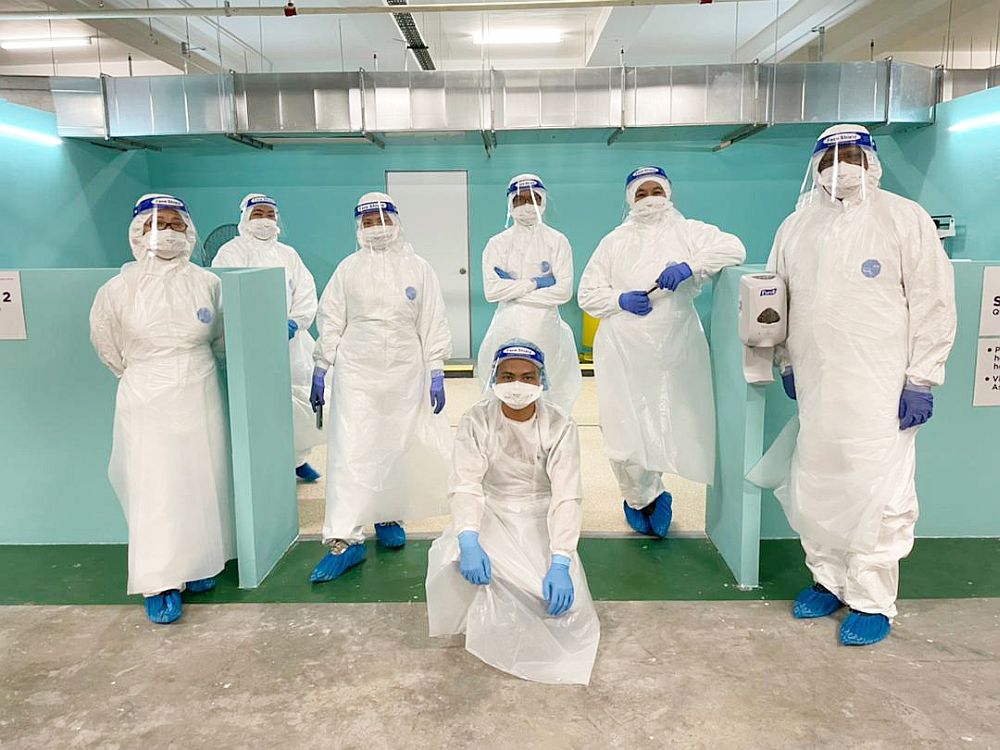
Nadiah’s overall good nature and her well-documented achievements have made her a deservedly recognised figure in public at large, especially in the health business.
When asked about her thoughts of being a young, female CEO in the health industry, Nadiah said people should view talent in a diverse manner.
“I think that for an organisation to be resilient, they should bring together a team with different perspectives and skill sets.
“So for example, in our hospital, we’ve had people who used to work in hotels and shopping malls. Covid-19 has led people to reconsider their careers and industries and be more willing to switch and I think that’s great for health care.
“We need people with those kinds of expertise, experts in data, and all sorts of things who traditionally would not have been attracted to health care companies. I think that’s great, but health care has its own sexism problems. For example, male nurses, we have very few of them, and it’s a battle to overcome societal stereotypes.
“We are always looking for male nurses. There are some tasks, like in orthopaedic surgeries where you have to lift the patient, where men just have a natural physical advantage.
“It’s difficult to find male nurses, and that’s something that we also want to encourage, for men to explore careers in health care as well,” Nadiah said.
She further pointed out that while there are many women CEOs in health care, the gap lies at the board level. Nadiah is a director of the Institute of Corporate Directors Malaysia.
“That’s where we start to see many women drop off. We are looking at how we can expand the diversity of Malaysian boards in general, not just in health care companies, to really reflect the customers and the working population within the organisations.
“The recent budget announcement of requiring at least one female director on boards of public listed companies is a signal, but still falls short of our aspirations to have women comprise at least 30 per cent of board positions.”


